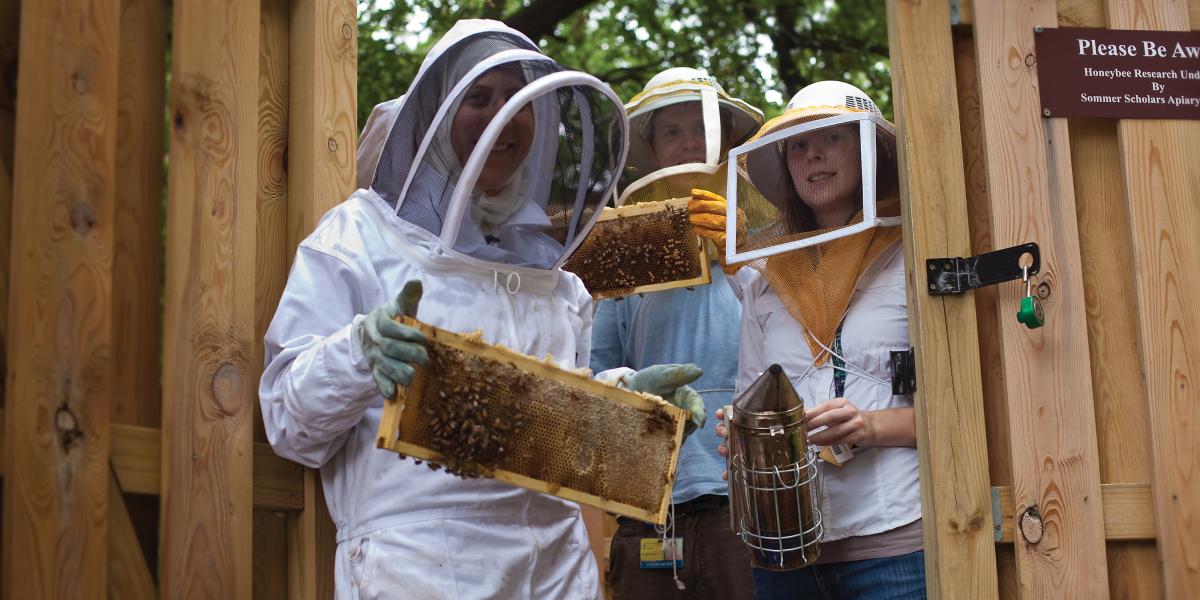Sweet Persistence
On a warm day in April 2010, Katherine Reiter drove her silver Honda Civic back to Baltimore after visiting a small house near Gunpowder Falls State Park.
Her precious cargo, carefully nestled in her backseat, weighed only 2 pounds but was droning an urgent tune. “I was terrified,” recalls Reiter, a Sommer Scholar and PhD student in Biochemistry and Molecular Biology.
Reiter was transporting about 2,000 live and buzzing Apis mellifera linguistica—honeybees—for the inaugural hive of Sommer Scholars Apiary Club.
Before the bees’ arrival, Reiter and PhD students Stefanie Trop and Sarah Khasawinah had to win approval from School officials to build a hive on campus. After considerable back and forth, the students got the okay to place the hive beneath the trees on the south side of the Hampton House building. (“I don’t know that it’s the strangest request we’ve had, but it’s certainly a novel request,” says Michael Schoeffield, director of Facilities Management.)
Over the next 16 months, the hive thrived. The bees now number more than 60,000 and have produced 60 pounds of honey, says Khasawinah, a bee enthusiast who’s been stung more than 40 times in her apiary career.
Besides producing honey, honeybees provide a critical service in food production: They pollinate one-third of the world’s food sources. But they’re also under threat. Since about 2006, scientists have documented a dramatic disappearance of honeybees that they call “colony collapse disorder.” CCD occurs when a hive’s worker bees abruptly disappear. U.S. bee experts say CCD may be caused by everything from pesticides to varroa mites, nutritional deficiencies and viral infections.
With support from the Sommer Scholars, the Center for a Livable Future and the Hopkins Alumni Association, the club hopes to contribute to preserving honeybees against CCD. They also hope to raise awareness about the importance of honeybees and increase agricultural sustainability in Baltimore, say members who now include students from the schools of Medicine and Nursing as well as undergraduates from the Homewood campus.
On a drizzly Wednesday evening in August, a dozen or so students and friends watched as Reiter and Khasawinah opened the hive for the honey harvest. The plan is to bottle the honey and sell it on campus. (They haven’t yet decided on a name, though the alliterative “Hopkins Honey” has been suggested.)
What began as a quirky hobby has become a consuming passion. Reiter says she’s now much more aware of where her food comes from and that she incorporates honey into her diet whenever possible. Khasawinah is developing an antibacterial cream made partly from propolis, the hard, sticky, gum-like substance collected by honeybees from tree buds and bark.
“It started off as a little idea and has become a big movement with thousands of bees across Baltimore helping pollinate plants and make Baltimore beautiful,” says Khasawinah.
